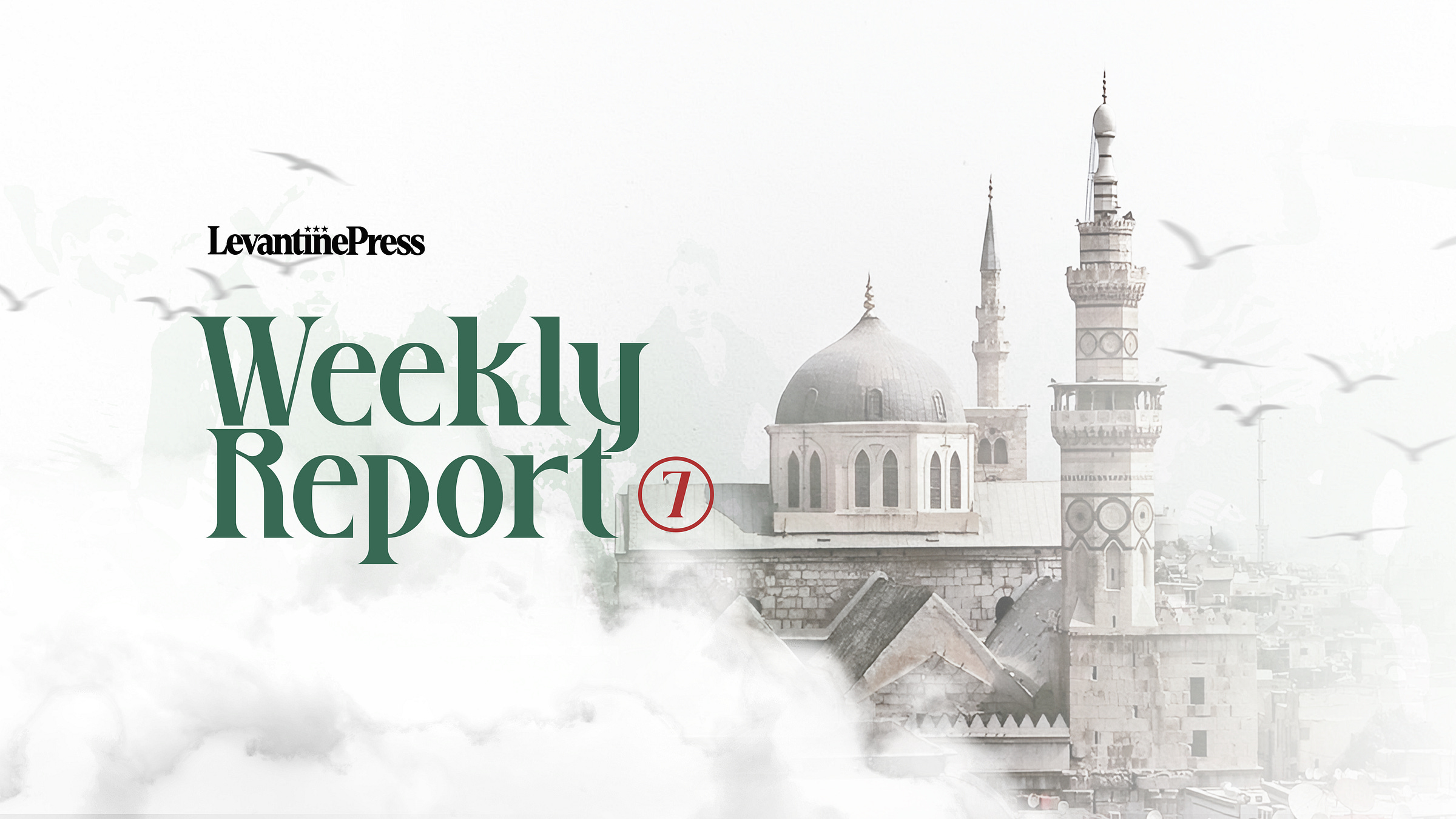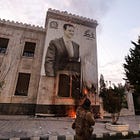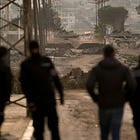Syria Weekly Report #7
Week beginning 20/01/25: updates on Syria's political transition, economy & infrastructure, foreign policy, security, and more.
This Week on Levantine Press
Levantine Press has published two articles this week, looking at the case for moving Syria’s capital, and how Syria’s government is reacting to Israel’s ongoing invasion since December 8th 2024:
State-building & Political Transition
The National Dialogue is Rescheduled
The National Dialogue conference which was to take place in early January had been delayed but is now supposedly taking place near the end of February. This will be the first national meeting between representatives from all walks of life in Syria to discuss the political roadmap for Syria.
Economy & Infrastructure
Syria’s Foreign Minister Lays Out Economic Vision
In an interview with the Financial Times, foreign minister As’ad Al-Shaybani discussed the economic vision for Syria.Syria's re-integration into regional and international political and economic networks is the only path to redevelopment, and with proper statesmanship, various interests can be balanced to benefit Syria first and foremost. However, privatisation for foreign capital should not extend to critical infrastructure (ports) or commodities (energy). The only reason for privatisation is if there is (and there likely is) a lack of state capacity to properly manage these assets, in which case (as is the likely scenario), privatisation should be limited to citizen-owned private companies. There are also numerous public-private partnership models that the government may consider to benefit Syria, something that Levantine Press will be exploring in the weeks ahead.
Some key quotes from the FT article:
Syria’s new rulers plan to privatise state-owned ports and factories, invite foreign investment and boost international trade in an economic overhaul designed to end decades as a pariah state.
He also said they would explore public-private partnerships to encourage investment into airports, railways and roads. The challenge, however, will be finding buyers for entities that have been in decay for years in a shattered country cut off from foreign investment.
“[Assad’s] vision was that of a security state. Ours is of economic development. There needs to be law and there need to be clear messages to open the way for foreign investors, and to encourage Syrian investors to return to Syria.”
“We don’t want to live off humanitarian aid, nor do we want countries to give us money as if they’re throwing the investment in the sea,” he said.
Central Bank Sanctions Assad Regime Businesses
The Syrian Central Bank orders the freezing of accounts belonging to businessmen and companies associated with the Assad regime. Singled out are the Katerjis: brothers Baraa and Hussam Katerji built a family empire based on ties to the regime during the Syrian war, handling everything from wheat and oil trade between ISIS, the PKK, and the regime, to funnelling IRGC funds to support the “axis of resistance” in Syria and Lebanon (for which they were sanctioned by the US treasury). Baraa Katerji was killed in an Israeli drone strike near the Lebanese border in July 2024, a move rumoured to have been facilitated by the regime as part of Bashar and Asma Al-Assad’s policy of monopolising the Syrian economy in recent years. Hussam Katerji is still at large.A Turkiye-Syria Free Trade Agreement?
The implementation of a new customs tariff caused economic chaos in northern Syria as duties on imports from Turkiye rose exponentially, often by 300-500%, as part of the Syrian government’s efforts to unify duties across Syria. Turkish businessmen and northern Syrian businessmen have both protested these measures, but this move was welcomed by southern businessmen and exports from Jordan and Lebanon who saw cost of trade with Syria decrease. In response, a Turkish trade ministry delegation travelled to Damascus this week to explore a return to negotiations (suspended since 2011) over a Turkiye-Syria Free Trade Agreement and resolve trade issues caused by the new customs tariff.
Foreign Affairs
Damascus to Davos
This weeks headline event was Al-Shaybani’s trip to Davos where he was interviewed by Tony Blair. This was a significant opportunity for Al-Shaybani to communicate the vision for Syria to a primarily western audience, but also to meet with policymakers and actors on the side. Al-Shaybani mentioned that in the short-term the government is focused on developing Syria’s capacities in health, education, telecommunications, energy, and transport infrastructure.Saudi Support for Syria Continues
On January 24th, Saudi Arabia’s foreign minister Faisal bin Farhan visited Damascus for the first time to meet with Ahmad Al-Shara, a day after Farhan’s attendance at Davos where he expressed ‘cautious optimism’ about Syria. With him, the Saudi ambassador to Syria Faisal Al-Majfal met with Syria’s defence minister Marhaf Abu Qasra to discuss defence-related issues.
Security
The PKK Escalates Terrorist Activities in North Syria
The continued PKK (“SDF”) occupation of north-east Syria poses the final obstacle to re-uniting Syria under one state. While claiming negotiations for its integration into Syria are ongoing, the PKK has significantly escalated tensions with the targeting and killing civilians in Jarablus and Manbij, towns in north Aleppo, as well as sniper attacks in the neighbourhoods it occupies in Aleppo city (Ashrafiyeh and Shaykh Maqsud). Damascus has been quietly moving troops to the north-east, emphasising that it wants a peaceful solution but will take any actions necessary to re-unite Syria. Apart from that, there is relative stalemate as Syria, Turkiye, and the PKK await President Trump’s decision on the US presence that has backstopped the PKK until now.The US and Syria Share Backchannel on ISIS
The Washington Post reveals the existence of a backchannel between the US and Syria’s government for sharing intelligence on ISIS activity in Syria, which has thwarted at least one plot this past month (to blow up the Sayyida Zaynab shrine in south Damascus). Backchannels like these will be crucial to developing trust so that Syria is not perceived as a state sponsor of terrorism in the region, and that the Syrian government can roll back and eventually eliminate the continued threat of ISIS in the country.
Link Dump
Easing them does not revitalize economy: Sanctions hinder recovery in Syria
An in-depth report on the sanctions regime on Syria and how it is hindering post-Assad recovery.
One Woman’s Fight to Rebuild Syria
An interview with the Syrian architect Marwa Al-Sabouni, who plans to open a summer school in Homs for architecture and horses.
Syria Needs a Strong Society, Not a Strongman
Author Robin Yassin-Kassab makes a useful distinction in the Islamism vs. secularism debate, emphasising that the real struggle is democracy vs. authoritarianism.






